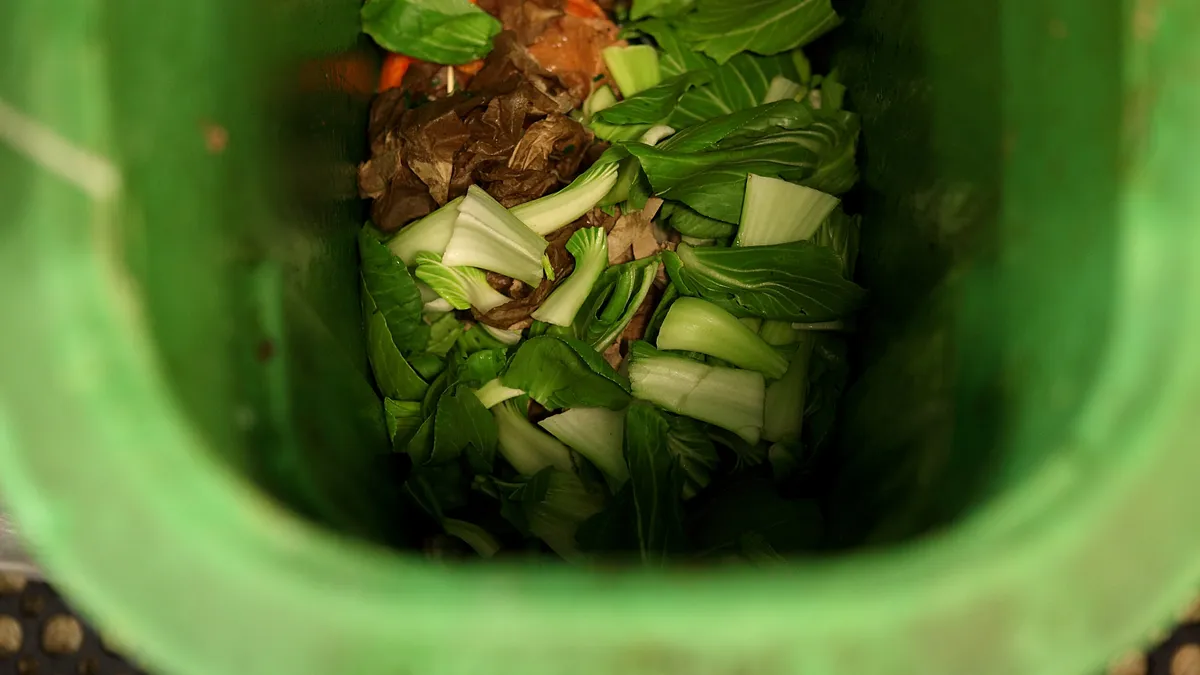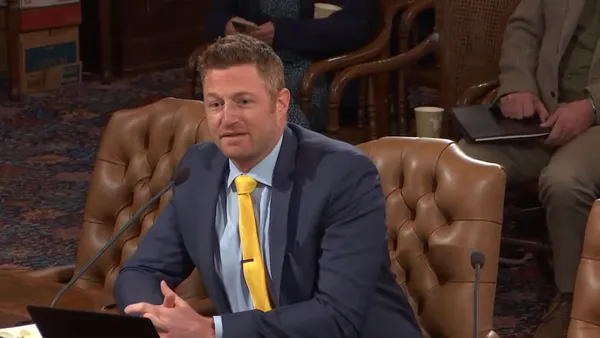Dive Brief:
- Composting, packaging and circular economy-oriented organizations and trade groups have formed the U.S. Composting Infrastructure Coalition to advocate for expanding and increasing access to “robust programs that divert food waste, yard trimmings, and certified compostable packaging.”
- The group’s initial push is to advocate for national funding programs that support a range of composting infrastructure projects. A federal bill in the works would provide approximately $200 million across a decade for grants and low-interest loans for such projects, say leaders of the newly formed coalition.
- The coalition — which includes the National Waste & Recycling Association and US Composting Council, among others — says the Biden administration’s enthusiasm for climate change mitigation strategies, environmental justice action and investing in infrastructure makes now a particularly apt time for such a push.
Dive Insight:
The coalition's spectrum of stakeholders say composting can positively impact rural and urban communities alike, while also benefiting both the economy and the environment. The coalition also makes the point that by diverting materials from landfills or incinerators, the U.S. can mitigate the disproportionate impact those facilities have on low-income or communities of color.
Frank Franciosi, executive director of the US Composting Council, said the coalition has been in the works for the past year. People want to compost their food scraps and compostable packaging, and “there's just not enough infrastructure, period,” he said.
The coalition, first announced last week, consists of seven groups: the US Composting Council, Plant Based Products Council, Institute for Local Self-Reliance, Biodegradable Products Institute, Foodservice Packaging Institute, National Waste & Recycling Association and Corn Refiners Association.
According to Franciosi, those are groups USCC has worked with in some capacity previously, with the exception of the Plant Based Products Council, which only launched in 2019, and the Corn Refiners Association.
Advisers to the group include the Natural Resources Defense Council, Closed Loop Partners, ReFED, American Public Works Association, U.S. Green Building Council and its TRUE Zero Waste certification arm, and GreenBlue Sustainable Packaging Coalition.
“Composting in general has not been funded as far as infrastructure growth. So we thought that, if you look at the Biden administration, they want to couple infrastructure with jobs and also make sure that we're not harming the environment,” Franciosi said, emphasizing that legislation supporting those ends "makes sense for both red and blue states."
As for the bill currently in the works, "A lot of other areas of recycling have been funded in the U.S., but never ever, to my knowledge, for pure building infrastructure for our industry. So it's a real positive," he said. The coalition hopes the bill will be introduced sometime in the months to come.
Last month, in a signal of the possibility for bipartisan action on composting, Senate Recycling Caucus co-chairs Tom Carper (D-Del.) and John Boozman (R-Ark.) previewed the Recycling and Composting Accountability Act during ISRI’s annual convention. The act's aim, in part, is to explore implementation of a national composting strategy.
Each group in the coalition brings slightly different expertise and perspective. NWRA is focused on the potential feedstock for composting and emphasizes composting as an important end-of-life management option for food, a major component of the waste stream, spokesperson Brandon Wright said.
ILSR, a proponent of small-scale community composting, has been particularly focused on ensuring that composting infrastructure is diverse and distributed — that funding opportunities are not awarded solely to larger composting operations. Other state-level programs have been "backwards" in that by prioritizing sites that divert the most waste, they shut out smaller sites, said ILSR's Brenda Platt, director of the Composting for Community initiative.
"The criteria for what gets funded should be things more like, are they creating programs in areas where there's little access to food waste compost?" Platt said. "We want the funding to go to a wide variety of distributed and diverse types of composting, and that composting is not as defined as large-scale regional, centralized, industrial composting."
Meanwhile, advisers NRDC and ReFED were authors of a food waste action plan they shared last month that calls for $650 million a year to support organics recycling infrastructure in cities and states and other food waste reduction strategies.
Franciosi said that as time passes, the coalition will “probably be more state-based” given that many regulations impacting this space are more state-driven. A recent example, which preceded the coalition’s existence, is Maryland passing legislation requiring significant generators of organic waste to find a way to reduce, donate or compost it, among other diversion or reuse methods.
Other policy areas for the coalition to address may include product labeling and ensuring that any extended producer responsibility programs set up for compostable products funnel funds raised from fees back into composting infrastructure investments, Franciosi said.















